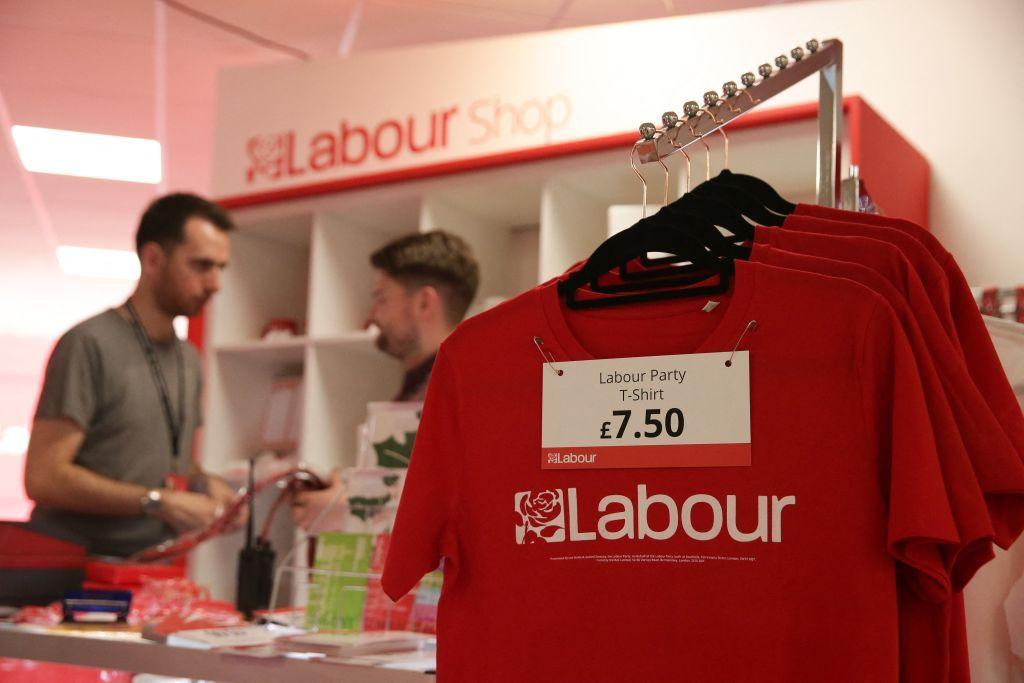Party memberships fell in 2023 despite looming election

- Published
Membership of the main political parties continued to fall last year despite Westminster gearing up for a general election, according to newly published accounts.
Labour lost 37,000 more members during 2023, leaving its total membership at 370,450 at the end of the year.
Although it still has the most members of any UK party, the figure is significantly down from a peak of 532,046 at the end of 2019.
The Liberal Democrats saw their membership fall by around 11,000 to 86,599, though the party said it had seen a rise in new members since its gains in July's general election.
The Conservatives do not publish membership figures, but their income from membership fees fell from £1.97m to £1.5m.
However, the Green Party saw its membership remain stable at around 53,000.
Reform UK said its membership had grown "significantly", although it did not publish figures.
- Published15 July
- Published7 December 2022
A spokesperson for left-wing Labour campaign group Momentum blamed the fall in party membership on "the deliberate decisions of the Labour Party leadership to reject the transformative, popular policies necessary to rebuild Britain".
"In addition, the leadership has repeatedly attacked pluralism and the rights of party members in order to weaken the left and threaten independent-minded voices within the Party," the spokesperson said.
"This may seem like smart politics at the moment but in the long-run Labour needs an active, engaged, mass membership to retain its political relevance."
A Labour Party spokesperson said it had gained thousands of new members since the general election.
"With Keir StarmerÔÇÖs leadership the Labour Party has changed, returning politics to public service and a laser focus on rebuilding our country," the spokesperson said.
"Our historic general election win was only possible because of this and the hard work and enthusiasm of our party members who shared LabourÔÇÖs positive message across the country in the campaign."
Despite Labour's membership dropping in 2023 and an increase in spending in preparation for a general election, the party ended the year with a smaller deficit than it expected.
It reported a shortfall of £851,000 compared with an expected £2.5m, with party treasurer David Evans saying this was because of an increase in high-value donations and attendance at its annual conference.
The Lib Dems ended 2023 with a surplus of £271,258, following a significant increase in donations and income from its party conference.
The Conservatives also recorded a surplus of £17.9m, helped by a £10m bequest in the will of supermarket tycoon Lord John Sainsbury.
The party had its most successful fundraising quarter in a non-election year at the start of 2023, according to its annual report.
However, during the election campaign earlier this year, the Tories trailed Labour significantly in donations.
In a turbulent year for the Scottish National Party, which saw the resignation of Nicola Sturgeon as leader and an ongoing police investigation into the party's finances, its membership fell by around 18,000 to 64,525.
SNP membership has almost halved from a peak of 125,691 in 2019, after it saw a surge in support in the wake of the 2014 independence referendum.
Party treasurer Stuart Campbell McDonald noted that members were facing cost-of-living pressures and said the SNP was seeking to pre-empt cancellations by offering options to reduce or skip payments.
An SNP spokesperson said it remained "the largest political party by far in Scotland - with a membership greater than all other parties combined".